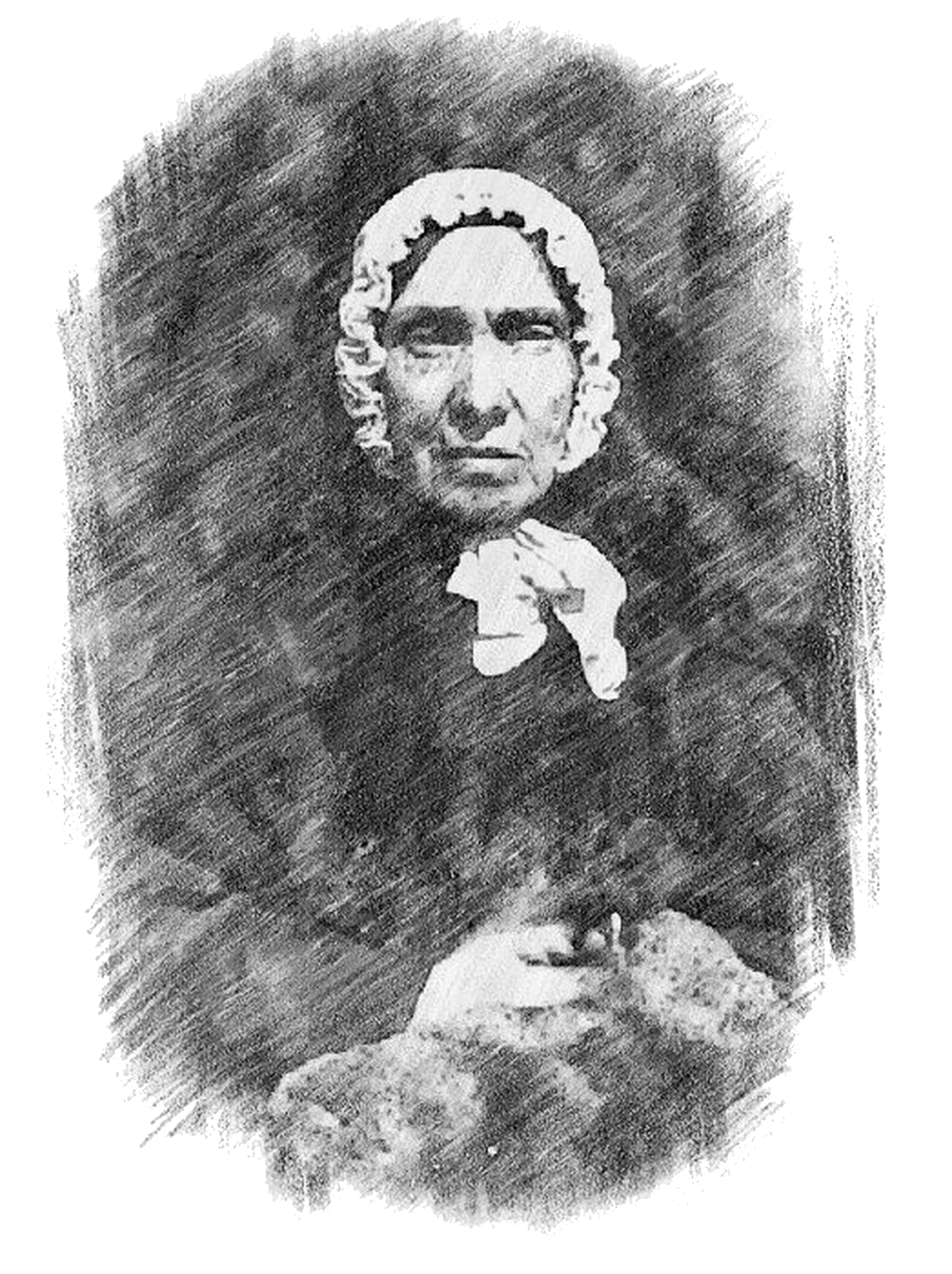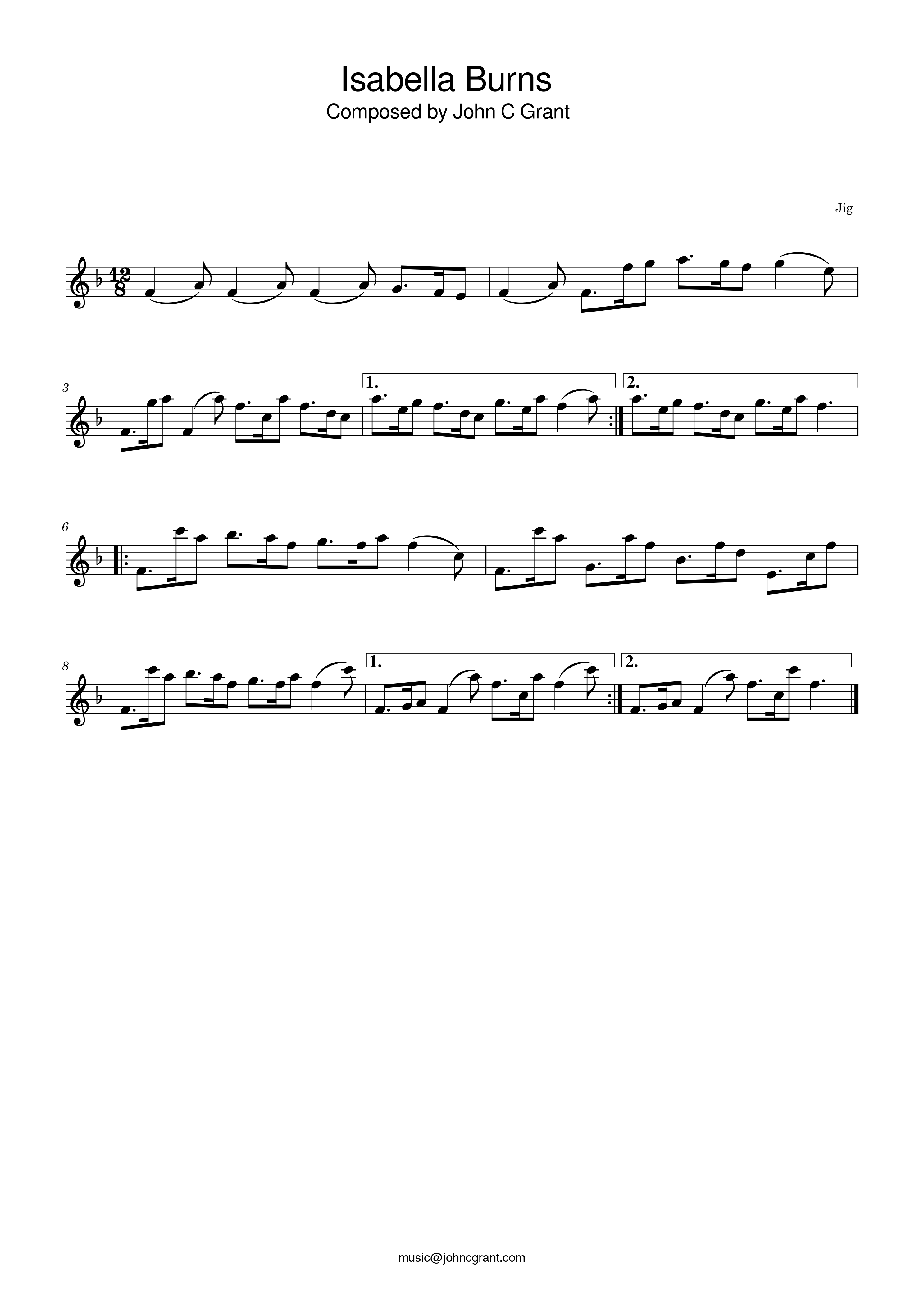
Isabella Burns (Isabella Begg) (1771–1858) or Isobel Burns (Isobel Begg) was the youngest sister of the poet Robert Burns, born to William Burnes and Agnes Broun at Mount Oliphant Farm on the 27 June 1771 and christened on 2 July 1771 by Rev. William McGill, a friend of her father.
When she died she was the last member of Robert Burns’s immediate family and when living at Bridge House in Alloway for the last sixteen years of her life she entertained many visitors who were interested in his life and works.
She was the source of many published insights into Burns’ life, character and loves. Her siblings knew her as ‘Isbal’.
Her sisters were Agnes and Annabella whilst her brothers were Robert, Gilbert, John and William.
When at Lochlea, Robert Chambers records from her own words “Her main occupation was one suited to her tender years – that of tending the cattle in the field. Her father would often visit her, sit down by her side, and tell her the names of the various grasses and wild flowers, as if to lose no opportunity of imparting instruction. When it thundered she was sure he would come to her, because he knew that on such occasions she was apt to suffer from terror.”
She recalled that her mother sang sweetly and had a great fund of ballads and songs, this being a significant influence on Robert. She also emphasised how considerate and supportive she was to her husband.
After her father’s death the family moved to Mossgiel Farm where she lived and worked for nine years.
Isabella remembered her sister Annabella taking her to dance at age 11 with Matthew Paterson at Tarbolton’s Bacherlors’ Club after his intended partner failed to turn up. She had been at a sewing class in the village.
Gilbert and Isabella are regarded as being very articulate and having a literacy propensity far above the average. John Wilson of Tarbolton of Dr Hornbook fame was her teacher for a brief period.
Robert Bowie from Stewarton became a merchant in Kilmarnock and for some time he courted Isabella however nothing came of it and he never married.
In August 1788 Annabella and Isabella were present at the birth of Burns’s second son, Francis Wallace, at Ellisland Farm on 18 August 1788.
At the age of 22 Isabella married John Begg at Mossgiel Farm and after a few years the Begg family moved to Dinning Farm in Closeburn Parish, Nithsdale in 1800, after Gilbert Burns moved from there to Morham Mains in East Lothian. In 1810 the lease expired and John Begg became the land steward for Mr James Hope Vere MP on his estate at Blackwood in Lanarkshire.
On 24 April 1813, after nearly three years at Blackwood, John met his death when his horse reared and fell on him, crushing him to death. He was returning from his regular trip to Lesmahagow market on a horse that he had been asked to ride because it had become fractious due to lack of exercise. Isabella was left a widow with nine children with ages from three to eighteen.
Robert Burns Begg wrote the ‘Memoir of Isobel Begg’.
For a while Mr James Hope Vere paid her a small annual grant however to make ends meet she opened a dame’s school in Kirkmuirhill which she ran for four years. William had qualified for the University of Edinburgh to study for medicine however lack of funds forced him to enter the teaching profession and after working at Dalmeny Academy he became the parish schoolmaster at Ormiston in East Lothian.
The whole family moved to Ormiston where Isabella again ran a school. She later moved to nearby Tranent when William resigned his post and supported her family with the help of Agnes and Isabella, working as dressmakers.
William had emigrated in 1834 and Jane died in July 1822, followed by Edward in March 1824.
Robert Burns Begg, her son, was able to obtain an annuity for his mother which she benefitted from for a number of years, relinquishing it when her circumstances improved.
In 1842 Robert Chambers and others secured an income for Isabella, Queen Victoria granting her a pension. in 1843 Dr Chambers also acquired for he the lifetime use of a picturesque cottage on the Belleisle estate on banks of the River Doon.
In 1843 the family moved back to Ayrshire and in her final years she lived at Bridge House, Alloway in a small thatched cottage where she died aged eighty-five in 1858. The house no longer stands having been demolished in the 1890s. It was located quite near to the main entrance to Belleisle House and was named after the bridge over the Slaphouse Burn.
In 1846 Isabella and her daughters met the Abolitionist leader Frederick Douglass who had been inspired by Robert Burns and made a special visit to Alloway and recorded the warmth of his welcome in the Narrative of the Life of Frederick Douglass, an American Slave.
Source: https://en.wikipedia.org/wiki/Isabella_Burns
A guide track for ‘Isabella Burns’ is available below for listening: -
You can download a PDF of the sheet music here
- or braille format here.
The track is additionally available within the following collections and sets: -
Associated Collections: -
12/8
Ayrshire Characters
Bachelors Club
Jig
Not Yet Recorded
Robert Burns
The Tarbolton Collection
The Three Six Five Collection

